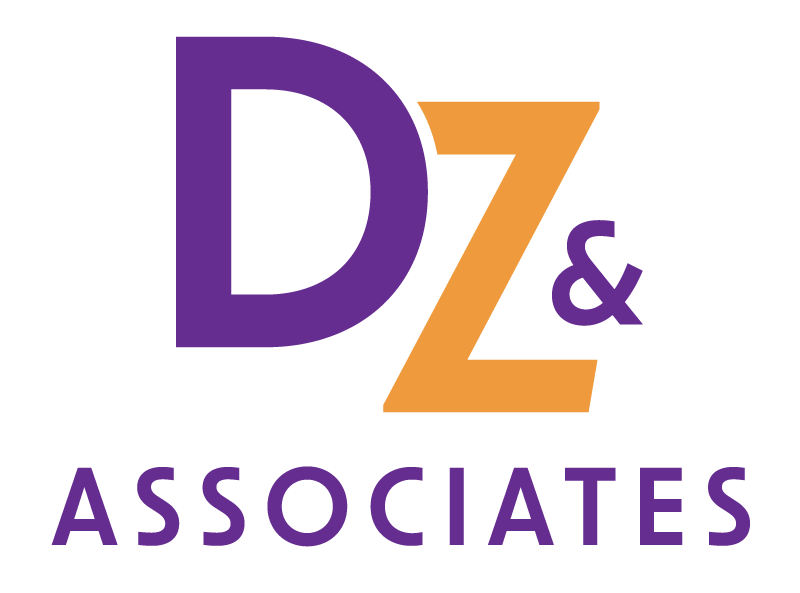You love the product or service your business provides and you want others to love it too. That’s where marketing comes in. Marketing is the key to making your business known to potential customers and guiding them toward becoming loyal patrons. Let’s explore the fundamentals of marketing to help you develop a simple yet effective strategy to get your business noticed.
The Understanding Marketing Basics
Marketing is all about spreading the word to the right people, in the right way. To succeed in marketing, you’ll need to focus on three fundamental steps:
1. Know Your Audience: Understand your target customers, their problems, goals, and preferences. Remember what originally drew you to your company’s product or service and target like-minded people. Create a simple profile of your “ideal customer” as a reference.
2. Craft a Compelling Message: Use that customer profile to create a message that grabs attention and persuades potential customers to engage with your business.
3. Choose the Right Channels: Deliver your message through appropriate channels that reach your audience at the right times.
Once you understand the basics of marketing, it’s time to look at marketing’s two main approaches:
Inbound Marketing:
This method of marketing empowers your potential customers to engage with your business on their terms and offers them immediate value. Various content-related strategies are used with inbound marketing to attract your target audience, including blogging, search engine optimization (SEO), and social media marketing.
Outbound Marketing:
With this method of marketing potential customers have less control with how they interact with your business. Outbound marketing utilizes interruptive methods like ads, cold calls, and direct mail to spread the word of your product or service. Essentially, it requires more assertive selling to convince potential customers they need your product or service.
The Difference Between Sales and Marketing
While the aim of both sales and marketing Is to make your business profitable, they serve very different functions in the areas of purpose, target audience, and tactics.
- Marketing: Marketing focuses on targeting a broader audience and how to generate interest in your product or service. It’s focused on reaching, engaging, and nurturing your prospective customers.
- Sales: Sales focuses on smaller groups of potential customers ready for decision-making. It works to convert these interested individuals into customers through lead follow-up, presentations, demos, addressing objections, and negotiation.
Marketing and sales often work together to promote your business. When marketing successfully creates and distributes research-backed messaging that attracts and informs quality leads, the sales department’s role of influencing buying decisions and closing the deal is suddenly much easier.
The Best Ways to Reach Your Audience
You’ve determined who your target audience is, so now it’s time to successfully reach them. Here are some of the best ways to do just that.
Consistent Marketing
When you take the time and resources to invest in a well-planned marketing strategy, you’ll discover several advantages:
- Increased Brand Awareness: Get your brand in front of the right audience.
- More Leads: Generate interest that can lead to potential customers.
- More Sales: Convert leads into revenue.
- Better Reputation: Establish credibility, fostering brand loyalty.
Whether you choose to use offline marketing, online marketing, or a combination of both, you can reap the above benefits. Let’s look at some traditional offline marketing methods and popular online marketing strategies to help spread the word about your business.
Offline Marketing Tactics
- Direct Mail: Send personalized promotional materials to a wider demographic. This is an effective idea for those less active on social media.
- Event Marketing: Create themed exhibits or presentations to build brand awareness and engage your customers.
Online Marketing Tactics
- Social Media Marketing: Engage with your target audience through organic content and paid ads and tailor content to platforms and audience preferences.
- Search Engine Optimization (SEO): Optimize website content to rank higher in search engine results and involve keyword research, internal linking, and building backlinks.
- Email Marketing: Send educational or promotional emails to nurture leads and be sure to personalize content for better engagement.
Other Online Marketing Tactics
You might also consider these additional online strategies to build your brand:
- Search Advertising: Run paid ads on search engines.
- Display Advertising: Advertise on websites through banners or sidebar ads.
- Retargeting: Show ads to those who visited your website before.
- Video Ads: Utilize videos on platforms like YouTube or as display ads on websites
Developing a Strong Marketing Strategy (and Measuring its Results)
You’ve got ideas aplenty for reaching your target audience and you’re ready to get out there and get started. To make the most of your marketing efforts it’s important to develop and have a strong marketing strategy in place.
Follow these steps for a robust marketing strategy:
- Set Measurable Goals: Quantify objectives with deadlines.
- Know Your Target Market: Identify commonalities among your customers and ideal clients.
- Assess the Competition: Differentiate your business by examining competitors’ positioning, messaging, offerings, market tactics, marketing channels, and pricing.
- Prepare to Stand Out: Clearly define your unique positioning, messaging, and strategies to help you stand out from your competition.
- Create a Budget: Estimate costs based on your chosen tactics.
- Develop an Action Plan: Allocate resources across the stages of the marketing funnel: awareness, consideration, and decision.
Once you have an organized marketing strategy in place, the final step is to measure your marketing performance by tracking key performance indicators (KPIs) based on your goals. Be sure to adjust your strategy based on your KPIs to ensure a high return on investment.
Some examples of KPIs can include:
- Search Engine Optimization (SEO): Monitor rankings and website traffic.
- Event Marketing: Track attendance and leads generated.
Your Marketing Partner for Continued Success
Marketing is a dynamic field encompassing various strategies and tools. By understanding the basics and tailoring your approach to your business needs, you can create a powerful marketing strategy to drive awareness, engagement, and revenue. But creating a successful marketing strategy can be overwhelming, especially as a small business owner. That’s where we come in. At DZ and Associates, we are here to partner with you to create an effective marketing strategy that will truly connect you with your customers. Together we will guide you through the strategy building process to effectively tell your company’s story and foster continued success through tested strategies and essential marketing tools. Contact us today to learn more about reaching your customers and your marketing goals together.
Source: LocaliQ

